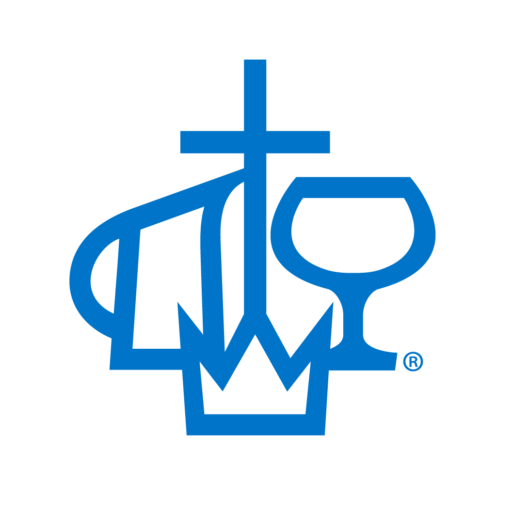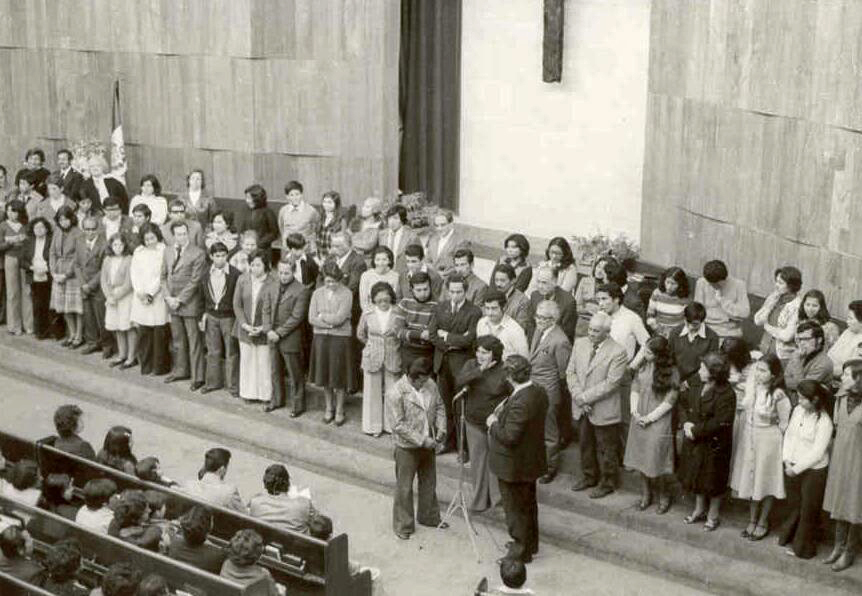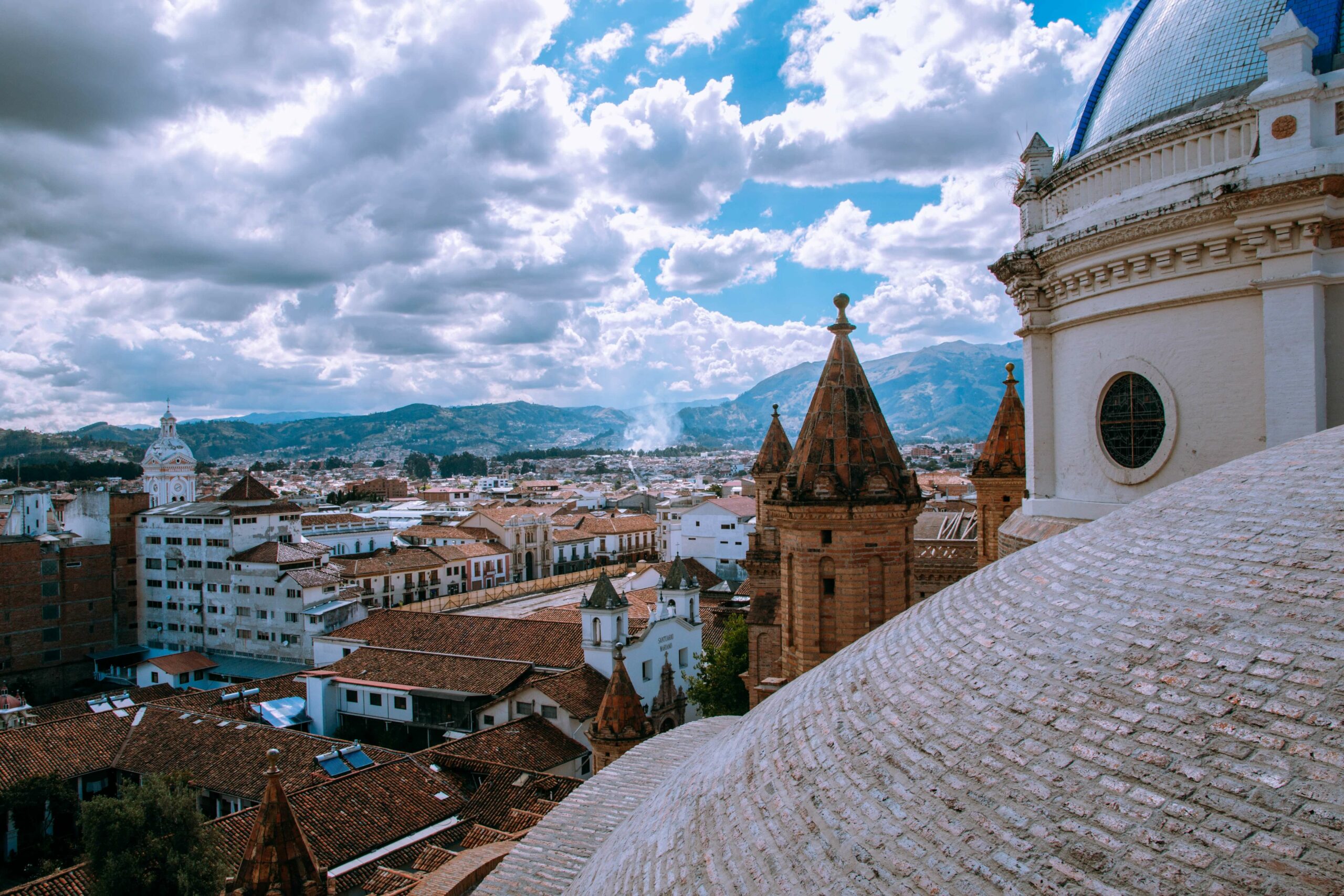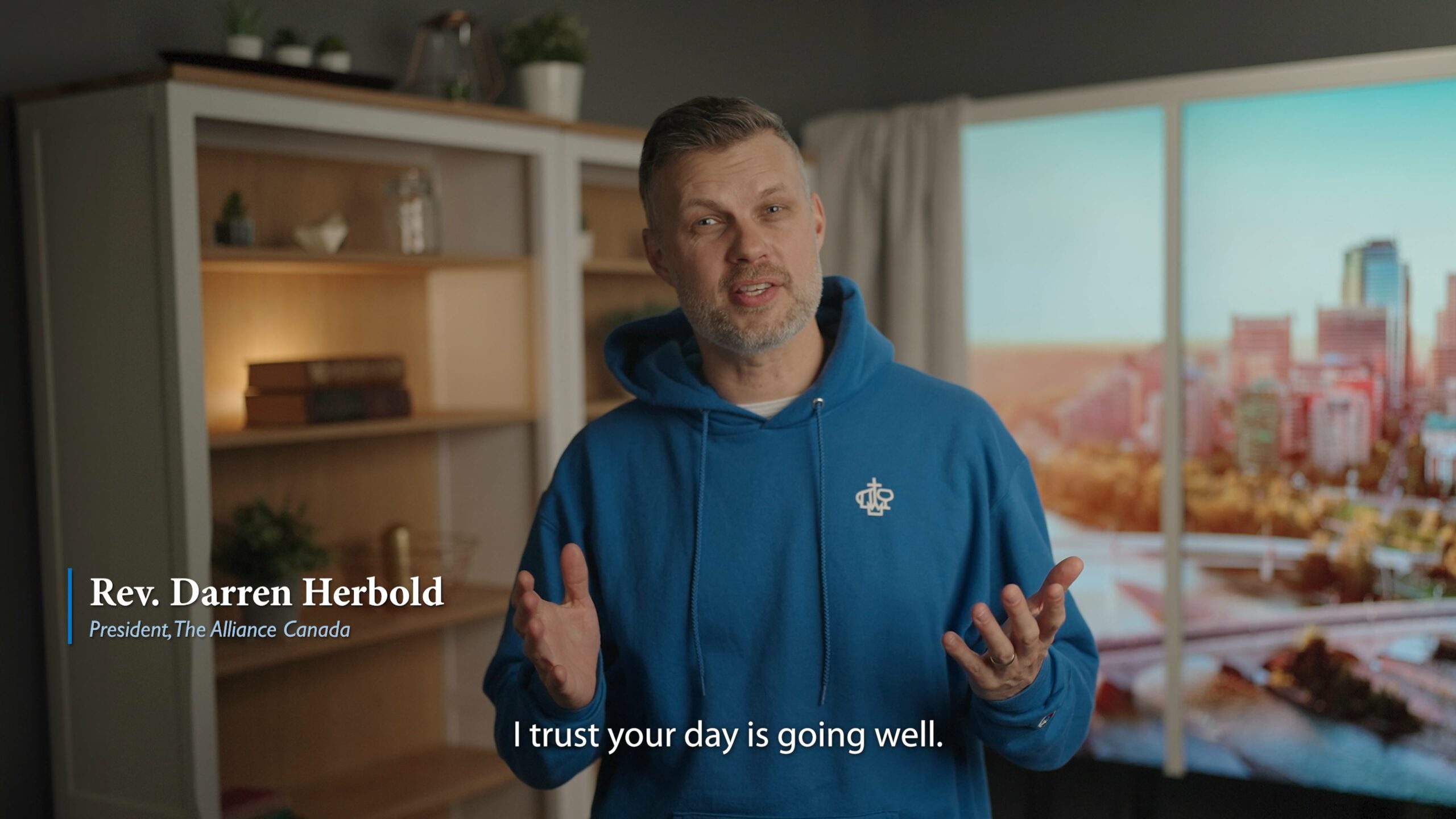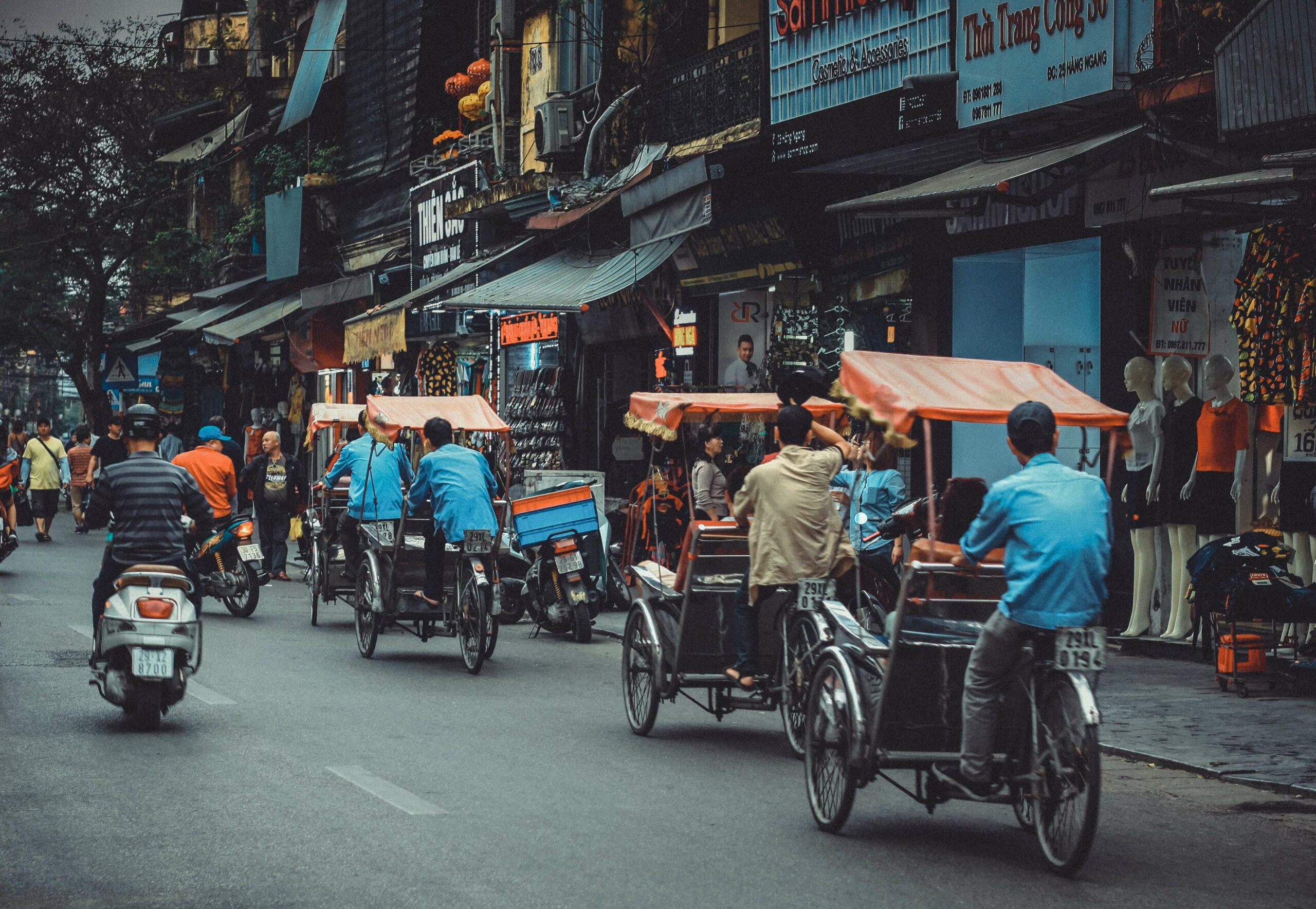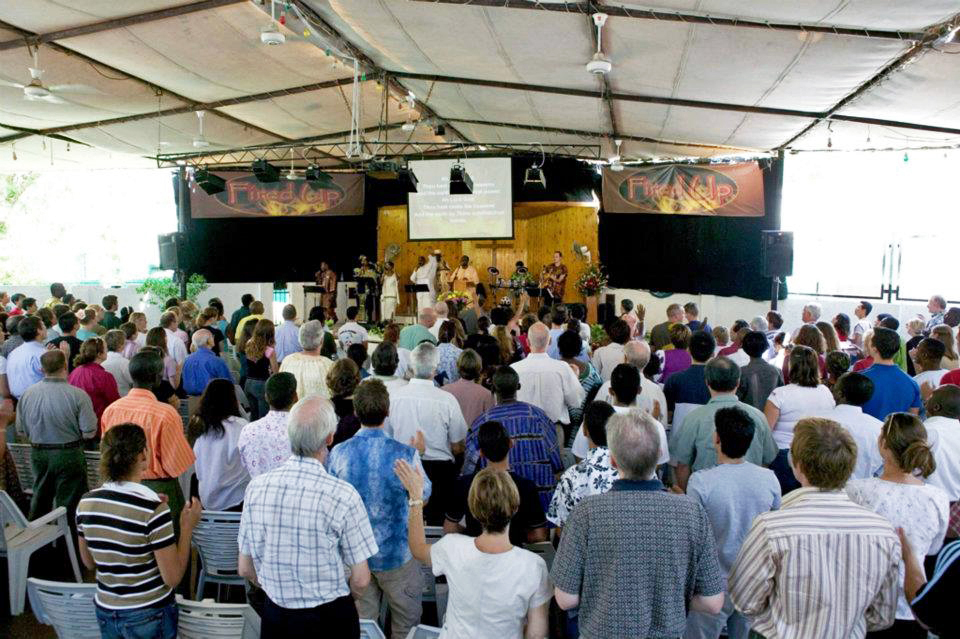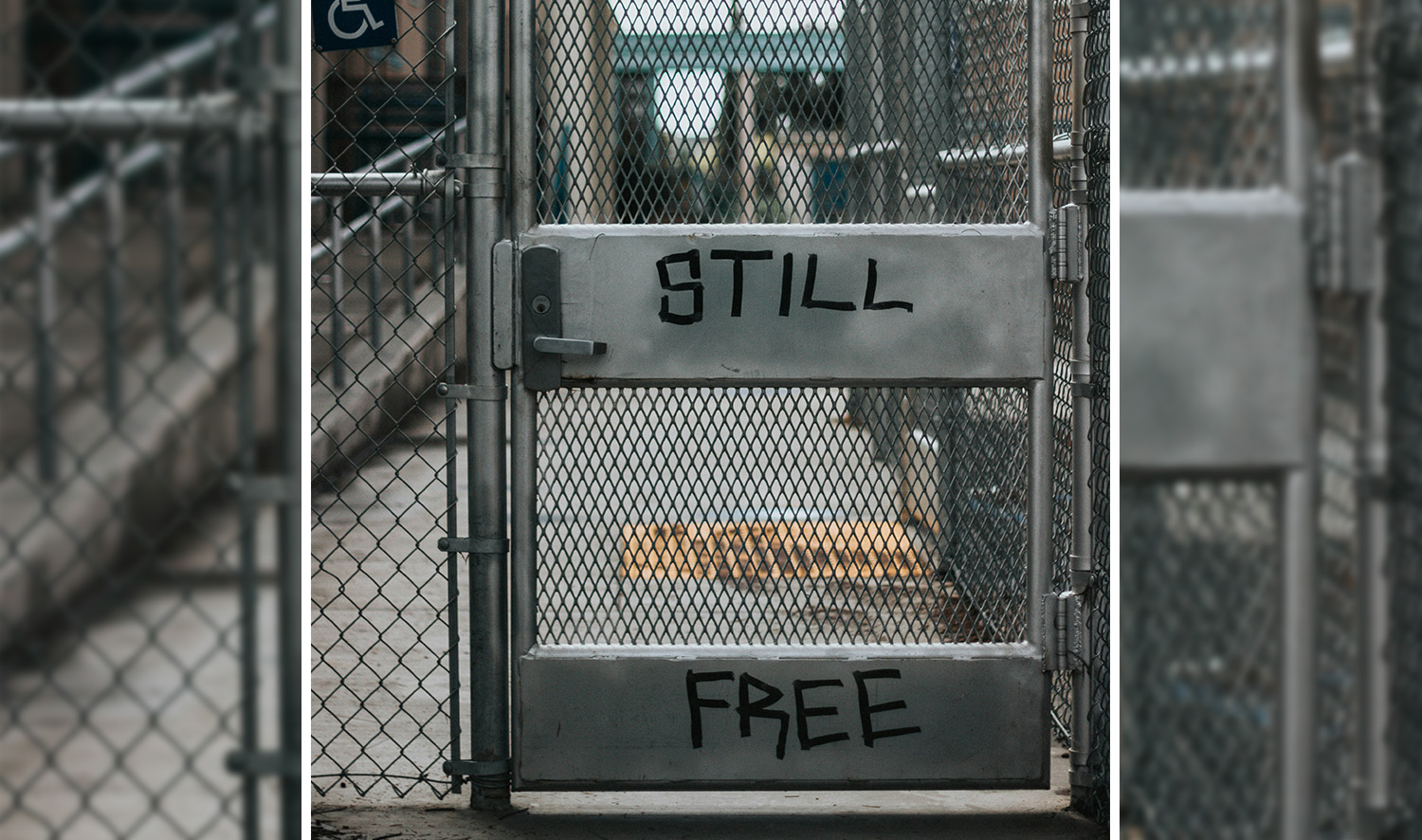A powerful sense of God’s presence pervades the Lince Alliance Church’s lower auditorium in Lima, Peru. Four hundred and fifty chairs are occupied while people stand shoulder to shoulder against the side and back walls. The evangelist’s message is unemotional, brief, and straightforward. As he moves to the side of the pulpit and invites people to come for salvation, the convicting presence of the Holy Spirit becomes intense, overwhelming the gathering. People hurry to the altar; some are crying. This profoundly moving moment is etched forever upon our memories, for we have seen the power of a divine visitation born in the intercession of committed men and women. The experience is the highlight of forty-five years of ministry.
It is October 1974. Faith and I have travelled to Lima, Peru, from our mission station at Huánuco in the Peruvian Andes. The evangelism program started in 1973 is exploding as the Holy Spirit brings hundreds of lost people into the Kingdom. That meeting was our introduction to LED (Lima to an Encounter with God).
The Early Years
I was born June 27, 1937, in Arcola, Saskatchewan. It was a special day for my parents as I was one of the first positive things to come into their lives amid the Great Depression, following the loss of twins in 1934. Bolstered by their faith in God, they had begun to build their life at Four Winds, a wheat and cattle farm near Griffin, Saskatchewan.
My father was a born innovator who built some of his own machinery and later, through self-study, became a journeyman electrical contractor. My mother was a graduate of the Regina Teacher’s College and taught for several years until her marriage to my father in 1933. She was an avid reader, student, author, and poet, serving as a newspaper reporter for over 30 years. My father was patient and caring, a true “people person” who enjoyed studying and teaching God’s Word. Both loved the Lord and invested a significant amount of their means in overseas missions, a Bible camp, and a small evangelical church in the town of Griffin.
Faith was born at Morristown, New Jersey, where her parents, Dr. and Mrs. Harold Ronson, pastored the Alliance church. She found Christ as her Saviour at the age of 10 and immediately discovered a strong desire for God’s Word. One of her household responsibilities as a teen was to dust and care for her father’s study. After her work was done, it was not unusual for Faith to be found reading one of her father’s study books.
Not long after she accepted Christ as her Saviour, the Holy Spirit spoke very clearly to her about serving overseas. She embraced this opportunity wholeheartedly, and from that point onward, this calling determined the life choices she made. As a child, she had contracted rheumatic fever, which affected her heart. She had been told by a doctor that she must never have children and would have limited strength throughout her life.
Seeing the firmness of her commitment to serve the Lord overseas, her parents, together with Faith, trusted the Lord for physical healing to remove the limitations that the damage to her heart had caused. She became aware of new strength, and when the time came for her pre-departure physical in 1962, the doctor could not find any problems with her coronary system. She has served the Lord in many locations—some at high altitudes—but always with an awareness of divine strength for each situation.
My comprehension of God as a living person came at the age of ten. I had disobeyed my mother, and she recognized the time had come for me to understand my need for salvation. She led me to a time of sincere repentance and prayer for forgiveness, resulting in Christ becoming my personal Saviour.
When I was ten years old, a Bible camp was organized on a farm near Weyburn, Saskatchewan. I attended every year, and in July 1951, during the invitation at the close of the Sunday afternoon meeting, I dedicated my life to full-time service. I was fourteen; it was a significant moment because it was clear that God would determine what I would do in life from that time on.
Ever since the small Griffin evangelical church had begun in the 1940s, our home served as a place where missionaries, pastors, and ministry groups came for a meal or to stay the night. So, from an early age, I was exposed to numerous people involved in ministry, some of whom left a deep impression on my life.
I followed the work of the Missionary Aviation Fellowship (MAF) for ten years, and by the time grade twelve was completed, it seemed that aviation was how I would be serving overseas. In March 1956, I began the Department of Transport training program at the Estevan Flying Club. I received my private pilot license on July 16, having received top marks in ground school and acquiring a reputation at the club for having a natural flying talent. Flying, however, was not what God had in mind for me.
Dr. David Tarr, Head of the Music Department at Canadian Bible College (CBC), was on his way from Regina, Saskatchewan, to Winnipeg, Manitoba with several CBC students when his car’s engine failed. He and the CBC choir were scheduled to participate in The Christian and Missionary Alliance (C&MA) Annual Council that evening. I suddenly found myself designated by the Dean of Men to rush them a backup vehicle. A subsequent decision to continue with them to Winnipeg, rather than find a way back to Regina, turned out to be life-changing.
Rev. Ben de Jesus Sr. preached with anointing at the closing service of Council. His message went directly to an unresolved aspect of my overseas call. I would not be doing what I enjoyed or felt most comfortable with; instead, the future was placed in His hands, and assurance came that He would supply gifts and strength for tasks far from the world of aviation.
In 1956, both Faith and I enrolled at CBC. The day I left for Regina, my father asked me if I was sure this was the right choice. Although it was what he and my mother wanted above all else, he felt an obligation to be sure I had thought through this next step. We both knew I was not a natural student; my skills were in other areas. The farming operation could be mine because Dad was also an electrical contractor; the transition would have worked out well for both of us. But he was relieved to see that the die was cast; his son was going to be a missionary.
The first year at CBC brought some significant struggles, but my course was set, and I graduated with a Missions Diploma in 1960. At the college, I met Faith, a lovely, spirited pastor’s daughter from Ontario. We began to correspond in the summer of 1957 and were married in Lumberton, NC, on June 25, 1960. God blessed our home with three children: Jessie Lynn, born in Rosetown, Saskatchewan in 1960; Stephen Francis in Lima, Peru in 1964; and Daniel John, born in Lima, in 1970. Faith’s deep love for her Saviour has been a great blessing and encouragement to me in our years together.
I was incredibly blessed during the time at Canadian Bible College to sit under the teaching of Drs. Murray Downey and Raymond Kincheloe. Dr. Downey had been a longtime friend of the family, and I knew of his unusually sacrificial spirit regarding ministry. His love for the Lord and his enthusiasm for reaching the lost continued to significantly impact me during the time at Canadian Bible College.
Although I had inherited my mother’s tendency for order and neatness, it was the example of Raymond Kincheloe which brought important changes in my lifestyle. He modelled what it means to give one’s best effort to every task.
In the fall of 1960, we were assigned to pastor the Rosetown Alliance Church. From the beginning in the pastorate, the blessing my wife Faith has brought to our relationship has proved to be a significant and ongoing source of spiritual encouragement during our 61 years of marriage. She frequently has an inspiring word when it is most needed, and the joy that she demonstrates for her walk with Christ is a constant stimulus for me to press in and know Him better.
During our time in Rosetown, as a young pastor, I found myself in a situation that, at times, was somewhat frustrating. However, in the congregation was a dear brother who, although physically afflicted and mistreated, was a beautiful example of what it means to be Spirit-filled. He spent his days in prayer and meditation; from time to time, he would receive a word for me from the Holy Spirit and come to the church to share encouragement and counsel just when it was most needed. I can still see his face and hear his oft-repeated query, “Are you pressing in, Brother?”
Following our two years of pastoral ministry at Rosetown, on July 26, 1962, we said goodbye to my parents and sister, Sandra, at the Regina airport. Our travels took us to New York City for yellow fever shots and a visit to the C&MA National Office. There President Nathan Bailey and other Alliance leaders laid hands on us and commissioned us for overseas service. After a few days in Lumberton, NC, to bid farewell to Faith’s parents, we left on August 23, 1962, travelling to San Jose, Costa Rica, for language study.
The year in language school passed quickly. While there, a latent interest in ham radio was revived. Following our arrival in Lima, Peru, on August 23, 1963, God orchestrated a chance meeting with a Peruvian ham radio operator, which led to my being licensed in December 1965.
First Term: 1962-1967
For the first 15 years of our missionary service, we lived in a provincial centre in the Peruvian Andes. Telephone communication over the nearly 200-mile single wire circuit to Lima was difficult and sometimes impossible. Radio played an essential part in our ability to have contact with our field headquarters in Lima and family in North America.
On August 30, 1963, Faith wrote, “Here we are in our little place which is going to be home for a few weeks. Until our boat freight arrives and our rental house is finished, we will be living in the guest room here on the grounds. It is a bedroom, a kitchen, and a bathroom. Just right for the things we have at the moment.”
Writing my parents, I noted, “We live in a valley at the 6,000’ level with mountains up to 12,000’ all around. The hills are barren, and most of the year, nothing but the odd cactus grows on them. The nights are cool, the mornings bright, and the afternoons windy and dusty. The mission compound itself is beautiful, with flowers next to the walks and gardens along the walls. Our first meal was in the Bible Institute—yucca, soup, rice, mutton, and carrots. I’ll be seeing more local cooking after September 19, when we teach our first rural institute up at Jacas Grande, a day’s trip by truck and a half-day by mule from here. I am to teach two 11-hour series, one on the Life of Christ and the other on Colossians.”
In August 1963, we began our missionary work at Huánuco, a city in the Central Peruvian Andes. Faith, well into her second pregnancy and the second-year language program, taught several courses in the Alliance Bible Institute. Alongside a seasoned missionary, I was assigned to present a ten-day Rural Bible Institute program in villages within a hundred-mile radius of Huánuco.
After a year and a half travelling by truck and mule among the Alliance congregations in the high Andes, I arrived at a point of ministerial and emotional crisis. It seemed the work the missionaries performed at a considerable physical cost was mostly ineffectual. Most people remaining in these towns had little motivation for anything, including Christianity. Looking back, I see how a natural impatience to get things done quickly had clashed head-on with the Andean people’s laid-back culture.
With little apparent interest and limited results, this frustration led to a point in 1965 where I seriously re-examined the validity of serving as a missionary. But God is faithful. Into our lives came David James Morse, a Welsh missionary with the Regions Beyond Missionary Union. David had gone through an identical crisis three years before.
Thus, began a friendship spanning the decades. David’s Bible ministry and wise counsel were used by God to give me an entirely new perspective on the task at hand. No sooner had I affirmed my willingness to continue when God opened the way for ministries in the Alliance bookstore and the Alliance Bible Institute in Huánuco. This new balance made the village trips by truck and mule more palatable.
Twice during the first term, death loomed over our family. A doctor had prescribed a medication for Faith that contained sulfa, which she is severely allergic to. In the middle of the night, without adequate medical help, we threw ourselves on the Lord and pleaded for His healing power to save her life. Shortly after, she stabilized and was well the next day.
Sometime later, an epidemic of paratyphoid came to our mission station. Little Stephen was very sick and continued to get weaker. We laid hands on him and asked God to spare his life. Just as had been the case with Faith, by morning, Stephen was on his way to a full recovery. Praise God that His promises are true!
Second Term: 1968-1971
August 1968 marked the beginning of perhaps the most challenging aspect of our missionary service. We sent Jessie, age seven, to the Alliance Academy in Quito, Ecuador. It was the only schooling option available, and our hearts were torn. The pain of those twice-yearly partings did not lessen with time for the children or for us. As a first-grader, Stephen followed Jessie to Quito three years later, as did Dan in 1978. And although difficult memories remain, today, each of our children is in ministry, serving God with blessing and dedication.
Circumstances on the field resulted in my being named director of the Alliance Bible Institute in 1968. Perhaps as fruit of the recommitment made in 1965, gifts I did not know existed also emerged. The student body grew, and some changes were made to the short-term program as well. I found great satisfaction in teaching students and administering the two programs. Faith carried a full course load in both programs.
In October 1968, we awoke to find that a Marxist military coup had removed the elected president and taken over control of the nation during the night.
Third Term: 1972-1976
Our first year of the third term was spent in the city of Chiclayo on the coast. This was a church-planting assignment, and we found that the ministry, and the coastal culture, brought significant challenges. The house next door was occupied by Far Eastern monks in orange robes who burned incense and chanted for hours in their back garden. Periodically, a cloud of oppression descended upon our home, and it was necessary to plead the blood of Christ over ourselves and the house in order to carry on. When we cried out to God, His glory replaced the oppressive atmosphere.
In 1973, we returned to the Alliance Bible Institute ministry in Huánuco. God continued to bless the institute as many new students came to study. The Marxist military government increasingly made demands to use Mission and National Church buildings “for the common good of the people.” The Peruvian Investigative Police (PIP – Peruvian equivalent of the KGB) visited us with veiled threats and unusual demands. What did they really want? Was it an excuse to observe us? But God had set the limits of this pressure. A march by Marxist university students against the institute property was stopped by police before coming to our part of the city.
Tensions continued to build. By June 1976, while on our way to the Lima airport for home assignment, we found ourselves confronted several times by armed military squads who, pointing sub-machine guns, demanded our papers and intentions. Later that year, a coup within the coup installed General Morales Bermudez as the new Peruvian president. We left Peru anxious to return to Huánuco and the Bible training program, but it was not to be.
Fourth Term: 1977-1981
During our third furlough, the Peru field director, Merle Sluyter, suffered a heart attack while on a trip in the jungle. A subsequent coronary event while he was on tour in New York State led to his death. The 1977 Field Conference asked me to serve as field director for one year. This twelve-month assignment eventually ran continuously, excepting home assignments, for the next twenty-four years.
One Sunday, the 2,000 seat Pueblo Libre church simultaneously baptized 70 new believers in their two baptismal tanks—35 to a side.
My mother was diagnosed with pancreatic cancer in 1978 and passed away in July 1980. We sensed the loss of her prayer support and her faithful letters. In 1979, our daughter Jessie graduated from the Alliance Academy and entered Toccoa Falls College.
In addition to duties in the field office, during this term, our residence doubled as the Alliance Guest Home, for which Faith and I were responsible. We also taught several courses in the newly-founded Alliance Bible training program in Lima and ministered in the churches. Faith hosted a Bible study in our home and spoke at many women’s gatherings. Over the years, she also did the job of office secretary several times during the home assignment of the person assigned to that role.
We ended this term physically and emotionally exhausted. We were learning that unless parameters were established, more and more would be loaded onto our schedule. We would have to establish our limits; nobody else would.
Fifth Term: 1983-1987
During home assignment, we recognized more fully the toll our fourth term had exacted from us. Late night and early morning trips to the airport to receive a seemingly endless stream of pastors and visitors who wanted to see the Lima to an Encounter with God program first-hand had worn us down. I recall falling asleep at the lunch table, much to the amusement of two visiting C&MA pastors. During our home assignment, the field requested a couple to look after the guest home; they were in place by our return in 1983.
Born initially from the need for a more extended recovery, we requested an additional year of tour ministry in the USA and Canada. In November 1982, my father was killed while engaged in his electrical contracting business. As executor of his estate, I was kept busy for the next six months closing out his two firms. How providential it was that we were still in Canada at that time. Now we understood why God had provided such a quick, positive response from C&MA leadership when we requested to extend our home assignment.
Once back in Peru, we lived in a home a short distance from headquarters, continuing with field leadership, Bible institute teaching, and home studies. We joined the pastoral team at the La Victoria Alliance Church, one of several daughter churches of Lince Alliance.
The guest home was now capably handled by a lay couple from Canada, and the LED program was growing by leaps and bounds. Hundreds were born again each month and enrolled in the new believer Bible training courses. At one point, there were more new Christians needing training than there were either facilities or people to teach them.
Begun in May 1980, the Shining Path Marxist guerilla movement steadily grew stronger, increasingly dominating the nation. While Lima remained mostly unaffected, pastors and missionaries in mountain and jungle locations regularly dealt with death threats and saw their churches burned or destroyed. The Shining Path leader boasted that he would exceed Mao’s atrocities to indicate his own commitment to pursuing what he called “The purest form of Marxism.”
Sixth Term: 1988-1992
Shining Path’s control of Peru was almost complete, and the terrorists were moving closer and closer to Lima. In the city, car bombs caused massive destruction, as did smaller explosive devices planted in markets, gas stations, public buildings, and churches. Power outages and threats to poison the water supply were frequent. A C&MA pastor was taken hostage, and threats were made against his wife, children, and church. Another pastor was approached by a guerilla demanding aid. This pastor countered the guerrilla’s threat of death by telling him that death held no personal fear for him but, “How about you,” he said, “what if you are killed? Are you ready to meet God?”
During this time, I attended secret meetings of Peruvian evangelical and mission leaders. A contingency plan was put together if Lima should fall to guerrilla control. Alliance leadership in North America gave our field leadership team full autonomy to determine if our staff should stay or leave. Staff was told that if the tension was more than they could manage, they were free to go with our full blessing, support, and understanding. We recognized that the terrorist threat loomed large for some, while it seemed less traumatic for others.
In 1990, a Japanese Peruvian was elected president of Peru. He quickly captured the Shining Path leader, restored financial order to the country, resolved a border conflict with Ecuador, and defeated a second Marxist group that had taken hostages in the residence of the Japanese ambassador to Peru.
Seventh Term: 1993-1998
During our seventh term, we were informed of the C&MA’s long-range plan to close out operations in Latin America and invest Alliance resources in areas of the world where the Gospel was less known. Peru was one of the first countries slated to be closed. Some felt missionary resources should continue to be invested where the harvest was greatest, and the return per dollar highest to assure that nationals were adequately prepared to later become a strong missionary-sending force.
As a staff, we prepared the National Church for the Mission’s departure. The farewells given by our Peruvian colleagues were characterized by an abundant expression of love we will never forget. When each missionary’s home assignment came due, they were re-assigned, retired, or released for another type of ministry.
Meanwhile, the churches continued to snowball. For example, in Lince, seven services were held each Sunday. To make the best use of time, those coming to the next service formed a long line to one side, leaving the other side free for those attending the previous service to exit rapidly. The next congregation was seated in just a matter of minutes.
Eighth Term: 1999-2001
During our final two years in Peru, street violence, carjackings, and home invasions became more frequent. Through it all, God protected us. Faith mentored pastor’s wives, spoke at various church functions, and joined a second church team. In addition to my administrative role, I continued to preach and teach on the deeper life.
Our appreciation for pastors, pastor’s wives and Alliance leaders reached a new level. We saw these dedicated people shoulder the load and prepare to go on without the missionary staff.
I often felt at a loss on encouraging the missionary team as we became fewer and fewer. Staff attrition was especially hard for those whose ministries clearly needed more time to be completed, a situation quite evident with the women involved in Christian Education and Sunday school staff training.
While repairing the top of a 14’-high security fence at the Lima headquarters in 1999, a ladder slipped; a length of 3/8” rebar entered near my right elbow, penetrating almost to my wrist. An initial attempt to pull my body high enough to free myself from the rebar failed. I cried out to God, and a force, not mine, suddenly raised my 205-pound body up and free of the fence. The miracle was further evidenced when we found my arm suffered no internal damage; only God could have lifted me, and only God could have guided that 10” piece of metal around vital arteries and nerves. He cares for us, believe me, He cares!
Latin American Regional Office: 2002-2005
We returned to Toccoa, Georgia, in July 2001 to retire. Forty years of overseas ministry had come to a close. God had given us the privilege of serving in Peru longer than any other couple. Two speaking tours remained, and then we looked forward to enjoying the home God had provided for us in 1992, becoming active at First Alliance Church in Toccoa.
Instead, on September 8, the International Ministries Department asked us to accept a three-year assignment as the regional leadership couple for Latin America. Based in Guadalajara, Mexico, we assumed the care of 208 missionaries in 14 countries.
The years of leadership duties in Peru were an asset in understanding the needs and circumstances of the Alliance staff in Central and South America. It fell our lot to resolve some difficult staff problems, but God supplied grace and wisdom as well as good support from the leadership at International Ministries.
Conclusion
What stands out? Above all, God’s unfailing blessing and faithfulness are abundantly clear. He gave Faith and me three beautiful children. He permitted us to be immersed in a genuine twentieth-century visitation of the Holy Spirit, in which thousands came to Christ and scores of new churches were planted. He gave beauty for ashes; cherished personal aspirations were replaced by opportunities and experiences beyond our dreams.
This is an excerpt from the book, On Mission Volume 1. Download your free copy today.
Share:
Find more posts about:
The Alliance Canada
Support the mission
The Global Advance Fund (GAF) is a pooled fund that supports our workers in Canada and around the world to share the Gospel with people who haven't yet heard the name of Jesus. Your continued generosity equips and sustains our workers and their ministry.

